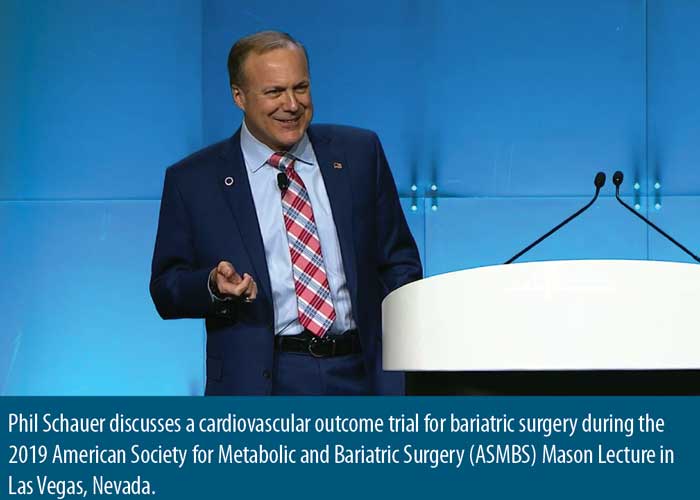Full Acceptance of Bariatric Surgery? …Let’s Face Reality and Demand Better Evidence!
 by Adrian Dan, MD, FACS, FASMBS
by Adrian Dan, MD, FACS, FASMBS
Dr. Dan is Medical Director, Weight Management Institute at Summa Health in Akron, Ohio, and Associate Professor of Surgery at Northeastern Ohio Medical University (NEOMED) in Rootstown, Ohio
Funding: No funding was provided.
Disclosures: The authors have no conflicts of interest relevant to the content of this article.
Bariatric Times 2021;18(1):10–11
“The solution might ultimately lie in the quality rather than the quantity of the evidence.”
Once again, bariatric circles are buzzing about new evidence that reaffirms the benefits of metabolic and bariatric surgery in patients with obesity and other associated comorbid conditions. This time, it is from the Swedish Obesity Subjects study, showing a significant improvement in longevity for the surgery group.1 Although this is another great study in the books, it seems anticlimactic and all too familiar. This is because every few months, more evidence supporting bariatric surgery is published in high-impact journals without hardly moving the proverbial needle when it comes to the acceptance and utilization of these highly effective therapies. It makes one wonder how much more evidence is needed to actually impact the extreme underutilization of metabolic and bariatric surgery, a problem that remains a major point of frustrations among surgeons and many patients.
We continue to report on the benefits of metabolic surgery often within the silos of our own journals and society meetings. We are essentially preaching to the choir, those who already see the benefits on a daily basis. It is important to realize that the utilization of this therapy also has many enthusiastic doubters who take issue with the evidence for metabolic surgery. They include well-intended healthcare professionals, and even some obesity, diabetes, and cardiovascular disease experts. Doubters also include many of the all-important payers who don’t cover bariatric surgery for any reason. Most importantly, doubters include the majority of patients who qualify for surgery, have coverage and opt not to have surgery to treat their disease. It is clear that the nonbelievers are the majority and hold a different opinion about the role of surgery. Skeptics of bariatric surgery are steadfast and quick to point out weaknesses of the scientific evidence for metabolic surgery.
At first, critics pointed to the anecdotal and retrospective nature of the observational studies about bariatric surgery. Then, the comparative cohort studies were criticized for their design flaws and lack of randomization. Some of the longitudinal studies showing significant benefits in favor of surgery are based on data from decades-old, antiquated procedures that pale in comparison to the highly evolved and sophisticated operations being performed today. These issues were countered by no fewer than 14 high quality small randomized, controlled trials (RCTs) showing the superior efficacy of contemporary surgery when compared to medical therapy for Type 2 diabetes. The opposing dialogue has further evolved, now contending that weight loss and improvements in biomarkers, such as glycated hemoglobin, blood pressure and lipid measurements, might not necessarily translate into a difference in clinical endpoints such as myocardial infarction, stroke, and death. For bariatric surgery, there have been no such RCTs showing a reduction in the major adverse cardiac events (MACE)2 as there are for carotid endarterectomy and coronary artery bypass in cardiovascular disease. Numerous large observational studies showed significant reductions in MACE, but in observational fashion.3 The evidence of cardiometabolic benefits presented to our colleagues in different specialties must be relevant in terms of clinical endpoints, ironclad, and irrefutable. The critics, however, will continue to point to the absence of a prospective, outcome-based RCT, the gold standard for any cardiovascular disease treatment. For the time being, this remains the Achilles’ heel of our rationale.
On the other hand, within our own specialty, there are those surgeons who maintain that such further research is NOT warranted.
- Is more evidence necessary to confirm what is already known?
- Have the safety and efficacy of bariatric surgery not been proven?
- Can the resources be utilized toward other endeavors and advocacy?
- Can we ethically randomize a surgical candidate to medical weight loss?
Those are all reasonable and important points, but a definitive trial might be the means to address the skepticism of the doubters. We still find ourselves in the process of gaining full acceptance for bariatric surgery, and the solution might ultimately lie in the quality rather than the quantity of the evidence. As with other principles and theories, the idea of metabolic surgery continues to make its way through various stages of acceptance. According to Arthur Schopenhauer, the 19th century German philosopher, they include being ridiculed and violently opposed before being fully accepted as self-evident. Unfortunately, this progression might be taking longer than many of our patients can afford to wait.
References
- Carlsson LMS, Sjöholm K, Jacobson P, et al. Life expectancy after bariatric surgery in the Swedish Obese Subjects Study. N Engl J Med. 2020;383(16):1535–1543.
- Livingston EH. The role of bariatric surgery in managing the macrovascular complications of obesity-related Type 2 diabetes. JAMA. 2019 Sep 2. Online ahead of print.
- Aminian A, Zajichek A, Arterburn DE, et al. Association of metabolic surgery with major adverse cardiovascular outcomes in patients with Type 2 diabetes and obesity. JAMA. 2019;322(13):1271–1282.
Guest Perspective
by Phil Schauer, MD, FACS, FASMBS
Dr. Schauer is Professor of Metabolic Surgery, Pennington Biomedical Research Center at Louisiana State University in Baton Rouge, Louisiana.
When I was President of the American Society for Metabolic and Bariatric Surgery (ASMBS) in 2007, the year we added “metabolic” to our organization’s name (from ASBS), fewer than one percent of patients who met the National Institutes of Health (NIH) qualifying criteria were undergoing bariatric surgery. Many, including myself, believed that a good number of patients who would greatly benefit from surgery had little chance of getting it. The evidence to support the safety and efficacy of metabolic and bariatric surgery was admittedly soft at that point in time. There were only a few observational studies and no randomized, controlled trials (RCTs). In fact, many thought that randomizing patients to surgery versus medical treatment was not even feasible. Consequently, the acceptance of metabolic and bariatric surgery as a treatment for severe obesity and metabolic disease was limited outside the surgical community. This fact accounted for its very low utilization, and a major global effort among surgeon leaders to obtain better evidence was started.
Fast forward to 2021, 14 years later, and surgeon investigators have delivered in a big way. There are now more than 30 observational studies published in prestigious journals (New England Journal of Medicine (NEJM), Journal of American Medical Association (JAMA) and The Lancet), demonstrating an approximately 45-percent mortality reduction associated with metabolic surgery compared to nonsurgical treatment. This is quite a remarkable effect. To paraphrase one of my endocrinology colleagues, “we start dancing in the street for a 5-10% mortality reduction with drugs like statins, glucagon-like peptide 1 (GLP1) analogues or sodium glucose cotransporter 2 (SGLT2) inhibitors; surgery has at least a five times greater effect!” The existing observational studies, of course, do not prove causality and are subject to many confounding variables. They are, however, exceedingly helpful in establishing a rationale for RCTs.
In 2007, it was not clear that an RCT was possible. Since that time, investigators have conducted at least 14 RCTs comparing surgery to the medical treatment of obesity and diabetes and published their work in highly respected journals. They proved that such randomization is indeed feasible. These were small studies, however, evaluating disease biomarkers such as glycated hemoglobin (A1c), body weight, and blood pressure. Results have consistently shown the superiority of surgery over medical treatment in terms of improving these markers of disease with very low complication rates. Improving biomarkers, however, does not necessarily equate to reduced morbidity and mortality. Additionally, small RCTs lack the sufficient size and power to assess for major adverse cardiac events (MACE) endpoints and cannot be construed as “definitive.”

Despite all this evidence for metabolic and bariatric surgery to date, we are still at about one percent utilization with only modest gains since 2007 in the United States (US) (from 200,000 cases per year to 250,000 cases per year in a population of more than 330 million). What is missing, you ask? In my opinion, which is also held by many endocrinologists and cardiovascular disease experts, we need a definitive cardiovascular outcome trial for metabolic and bariatric surgery with MACE endpoints. If the results are favorable, it would represent the single most important initiative to likely move the needle toward greater utilization of surgery for the betterment of patients.
The body of evidence generated thus far provides substantial rationale and feasibility. Such a trial, in fact, is required for any pharmaceutical or procedure-based treatment that claims a cardiovascular benefit whether it is a statin, GLP1 analogue, SGLT2 inhibitor, carotid endarterectomy, or coronary artery bypass surgery. Such a trial will be expensive, but the cost pales in comparison to the greater than $7 billion the US is spending on metabolic surgery per year without this definitive evidence. This endeavor is best conducted with the support of all key stakeholders, including government and industry. An effort to develop and fund such a study is currently underway and led by a multidisciplinary group of investigators with expertise in conducting cardiovascular outcome trials. While many prominent endocrine, cardiology, and obesity organizations have endorsed the project, strong support from our surgical community and the medical device industry will also be crucial toward making such a “dream” trial a reality.
Category: Past Articles, Perspectives




